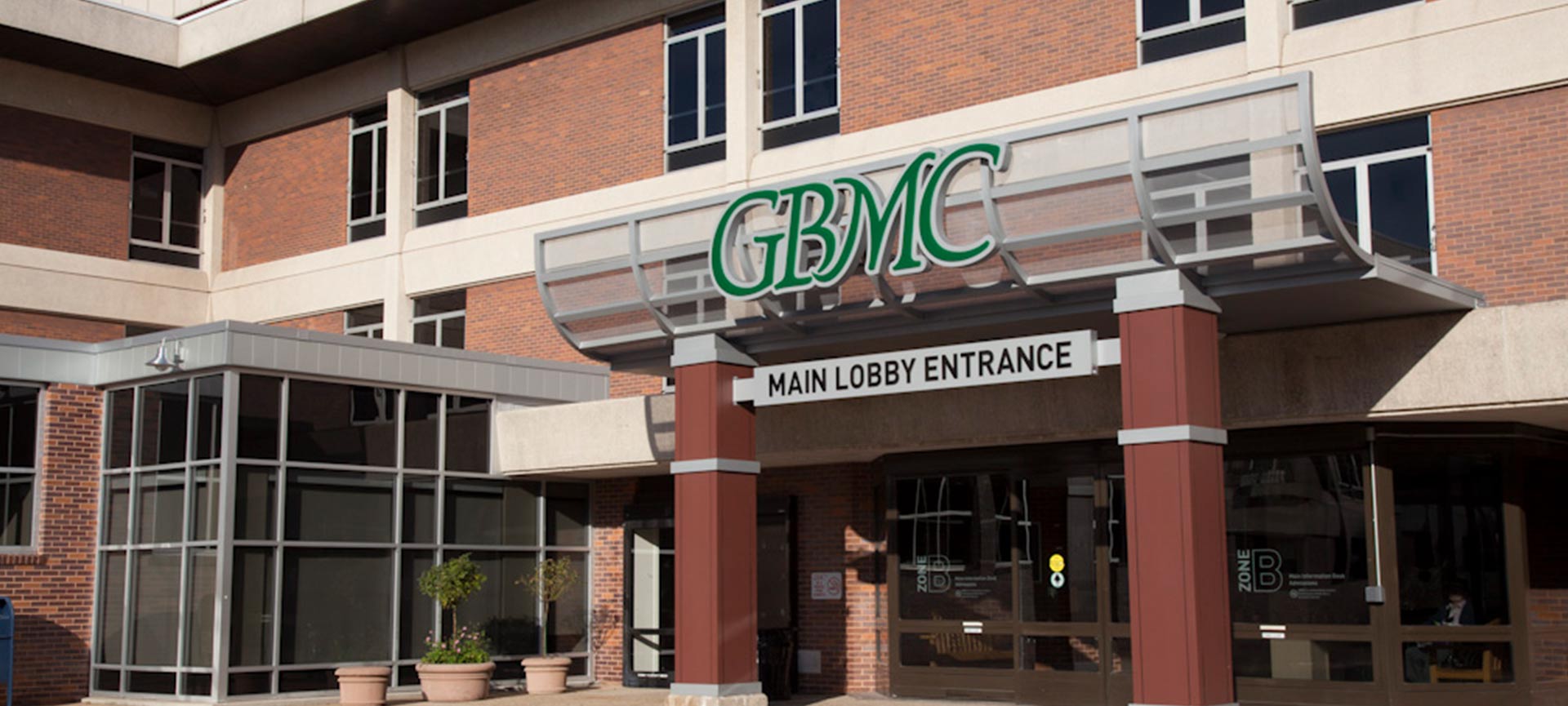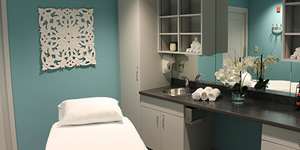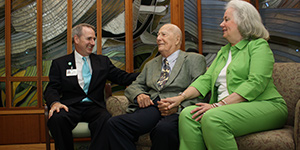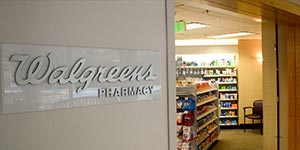Surgical Centers at GBMC
FOR PATIENTS
Preparing for Surgery
You may have received specific instruction from your surgeon about pre-operative procedures. For all surgeries, we ask patients to prepare by following these instructions:
- Do not eat or drink anything after midnight the night before surgery. This includes water, coffee, tea, gum, and mints.
- If you are instructed by your doctor to take medication before surgery, it may only be taken with a sip of water.
- Discontinue use of all herbal medications seven days prior to surgery.
- Shower or bathe according to your surgeon’s instructions.
- Wear clean, loose, and comfortable clothing.
- Do not wear makeup or jewelry, including body jewelry
- Bring glasses/contacts if you require them. If you wear hearing aids, please bring them as well.
- Keep personal valuables at home. GBMC is not responsible for lost or stolen items.
- Make arrangements to have transportation available when you are discharged. There must be a responsible adult accompanying you. You may not use a cab or Uber/Lyft to leave the hospital following a surgical procedure.
- If you know you will be admitted to hospital after surgery, please pack a small suitcase with clothes/basic toiletries and leave it in the car or with your friend/family member. The suitcase can then be brought to you after you are admitted to your room
Please bring the following items with you the day of surgery:
- List of medications/vitamins/supplements and dosage information
- Any important paperwork from your surgeon’s office
- Insurance card(s)
- Photo identification
- CPAP machine if needed, in case you are admitted to the hospital
- Inhaler if needed
- Oxygen if needed
- Crutches/walker if needed
During pre-op you will change into a hospital gown and your nurse will:
- Record your height, weight, vital signs, and allergies
- Review medications, medical/surgical history, and necessary consent forms for your signature.
- Perform required tests such as blood glucose, pregnancy test, EKG, if indicated
- Prepare the surgery site.
- Document your designated contact person to receive updates during your surgery.
For your safety, you may be asked the same questions by multiple caregivers (i.e., name, date of birth).
After Surgery
After surgery is completed, you will be transferred to the Post Anesthesia Care Unit (PACU), where your vital signs will be monitored, and you'll slowly begin to wake up. Family and friends will be notified when you have been taken to the PACU. You will remain in the PACU until your vital signs are stable, you have regained consciousness, and you are ready to transfer to your new room or be discharged home.
When you're ready to be discharged, a nurse will verbally go over instructions with you and your caregiver. These instructions will also be provided in written form. Once you have been cleared to be discharged, you will not be able to drive, so please have transportation arranged prior to surgery. You may not use a cab or Uber/Lyft to leave the hospital following a surgical procedure.
FOR VISITORS
Visitors are welcome, but may need to be limited during the pre-op preparation. Your designated contact person will receive regular updates during surgery and recovery.
Surgical Waiting Room
The surgical waiting room is available 24 hours per day for family and friends of surgical patients. The waiting room is staffed by greeters Monday through Friday, from 5:30 a.m. to 5:30 p.m.
We request that you:
- Assign a family member or friend to stay in the surgical waiting room until the surgeon calls or comes down after surgery.
- Identify one person to communicate with the surgeon and the operating room and PACU staff.
- Advise one of our volunteers when you enter and exit the lounge, and provide a contact number — such as a cell phone number — where you can be reached.
During Surgery
The surgeon likely gave an estimate of how long your loved one's surgery should take. Please remember that surgery might take longer than expected or might be delayed due to emergencies or previous surgeries extending beyond their estimated completion times.
There is a communication (tracking) board in the surgical waiting room that allows you to know where your loved one is in the surgical process. Please ask the volunteers at the desk if you are concerned with a delay or need more information.
While You Wait
Speaking with the Doctor After Surgery
Your loved one's surgeon will reach out to you after the procedure is complete by:
- Calling the surgical waiting room
- Visiting the surgical waiting room
- Meeting with you in the consultation room
You should stay in the surgical waiting room until you speak to the doctor. If you must leave the room, please provide our volunteers with a number where you can be reached.
Communicating with and Visiting the PACU
We understand you are anxious to know when your family member or loved one is out of surgery and how they are doing. Please keep in mind this is a busy time for the nurse, who is carefully monitoring your loved one’s recovery.
We know you are anxious to visit your loved one. It can take up to 90 minutes after surgery for PACU staff to care for and prepare a patient for visitors. Parents of young children who have undergone surgery will be invited into the PACU as soon as the child awakens from anesthesia.
As soon as your loved one is settled, the PACU nurse will call the surgical waiting room. Please note: we allow two visitors to see a patient during his or her time in the PACU, and we ask that visits be limited to five minutes.
We limit the number of PACU visitors to:
- Ensure the safety and confidentiality of patients
- Reduce the risk of infection
- Reduce interruption to staff work flow
Things to know before entering the PACU
- Visitors must be over 14 years old.
- Be sure you feel comfortable in a medical setting and can remain calm when seeing your loved one after surgery.
- Use hand sanitizers as you enter and leave.
- Do not bring food, drinks, cell phones, or cameras in the PACU.
- Please follow directions from PACU staff. You may be asked to leave during certain procedures or situations.
When entering the PACU, you should expect:
- A large room with many patients, IVs, oxygen, monitors, and other medical equipment.
- Noise like monitor alarms, other patients, equipment, staff and patient conversations.
- Activity like x-rays, blood work, personnel and patients coming and going.
Your loved one may:
- Have tubes and drains attached.
- Appear pale, puffy, or swollen.
- Complain of a sore throat caused by a breathing tube inserted during surgery.
- Be shivering (nurses will apply warm blankets).
- Be given pain medication that causes itchiness or sleepiness. Remember, rest is important during recovery. Resting from pain medicine is encouraged and normal.
Don't worry if you are unable to visit the PACU. Our nurses are trained to provide the best possible care throughout the anesthesia recovery process and will update you on your loved one's progress.





